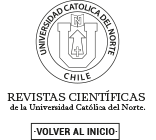Work addiction in self-employed professionals
DOI:
https://doi.org/10.22199/issn.0718-7475-2019-03-014Keywords:
Work addiction, Free-lance work, Occupational healthAbstract
Objective: This study aimed to identify work addiction (WA) predictors in a sample of 490 Brazilian self-employed professionals (SEP). Method: Sociodemographic and labor questionnaire, Dutch Work Addiction Scale, Motivation Scale - Regulatory Focus and Life Satisfaction Scale were used as research instruments. Results: The results identified a predictive model, obtained through Multiple Linear Regression, for each of the dimensions of WA: excessive work (EW) and compulsive work (CW). On the EW dimension, the model identified as directly proportional variables to WA the weekly workload, the focus on promotion, the motivation/focus on prevention, the importance attributed to work, individual work, and belonging to the female gender. As inversely proportional variables figure age and not taking work activities to do at home. On the CW dimension, the directly proportional variables to WA was motivation/focus on prevention, weekly workload, the importance attributed to work and belonging to the female gender. The inversely proportional variables was the higher age, satisfaction with life and not taking work for do at home. Conclussion: The results identified may support new studies and interventions aimed at the prevention of WA in SE.
Published
How to Cite
Issue
Section
Los autores continúan como propietarios de sus trabajos, y pueden volver a publicar sus artículos en otro medio sin tener que solicitar autorización, siempre y cuando indiquen que el trabajo fue publicado originariamente en Revista Salud & Sociedad (ISSNe:0718-7475).


_(1).png)





